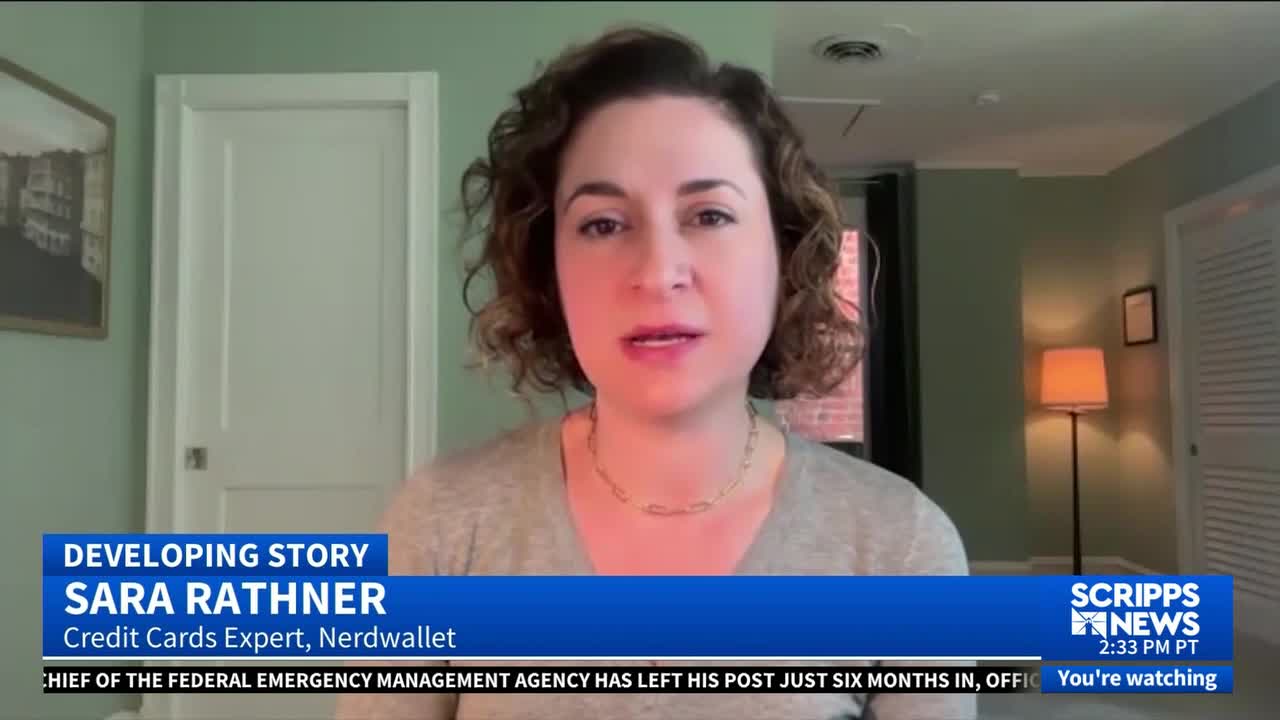A proposed settlement between credit card giants Visa and Mastercard and merchants could result in lower prices, but it could also mean fewer payment options for consumers.
The settlement addresses swipe fees — charges retailers pay every time a customer uses a credit card. According to the National Retail Federation, credit card companies charged merchants an average 2.35% swipe fee in 2024. That means for every $100 credit card purchase, a merchant pays $2.35.
"Some retailers will build the cost of these fees into the cost of doing business, so consumers don't necessarily see an impact one way or the other," said NerdWallet credit cards expert Sara Rathner. "They might also roll the cost of those fees into the pricing that they charge for the items that they sell."
These fees sparked a 20-year legal battle between Visa and Mastercard and merchants and retailers.
"Then you have consumers off to the sidelines watching with bowls of popcorn just waiting to see what happens and feeling relatively powerless in the situation," Rathner said.
RELATED STORY | Secret credit card perks that save money, but many people don't know about
Proposed deal with merchants
The first proposed change would reduce swipe fees, also known as interchange fees, by 0.1% over the next five years.
In a statement, the National Retail Federation argues that the settlement should be rejected.
"Once again, this proposal is all window dressing and no substance. The reduction in swipe fees doesn't begin to go far enough," said NRF chief administrative officer and general counsel Stephanie Martz.
According to the NRF, swipe fee rates have tripled in the last 15 years, directly driving consumer prices up.
Another proposed change would allow retailers to reject certain higher-fee, high-reward cards that further pass fees directly to the consumer.
This reverses the current "honor-all-cards rule" which states a merchant accepting Visa or Mastercard as a form of payment, must accept all iterations of Visa or Mastercard products.
From a merchant's perspective, Rathner said declining certain forms of payment is risky business.
"If you stop accepting certain forms of payment, you run the risk of losing customers," Rathner said.
Visa and Mastercard shared the following statements with Scripps News:
"After more than 20 years of litigation, Visa and Mastercard have reached a proposed settlement with U.S. merchants of all sizes that would provide meaningful relief, more flexibility and options to control how they accept payments from their customers," a Visa spokesperson said.
"We believe that this is the best resolution for all parties, delivering the clarity, flexibility and consumer protections that were sought in this effort. Smaller merchants will gain in this settlement – more acceptance choices, reduced costs and simplified rules. Even more, it allows us to focus our energies on continuing to give consumers, small businesses and larger merchants what they expect from Mastercard – a better payments experience, strong value and peace of mind," a Mastercard spokesperson said.
Timeline for changes
According to an official familiar with the settlement details, U.S. District Judge Brian Cogan set a Dec. 12 deadline for groups to file objections to the settlement proposal.
The National Retail Federation tells Scripps News it will submit objections and expects other merchants to do the same.
Rathner said, if the settlement is approved, any changes would still be months away but adds it's always a good idea to carry multiple payment options.
"Not every payment method is accepted everywhere and that's even true today," she said.




